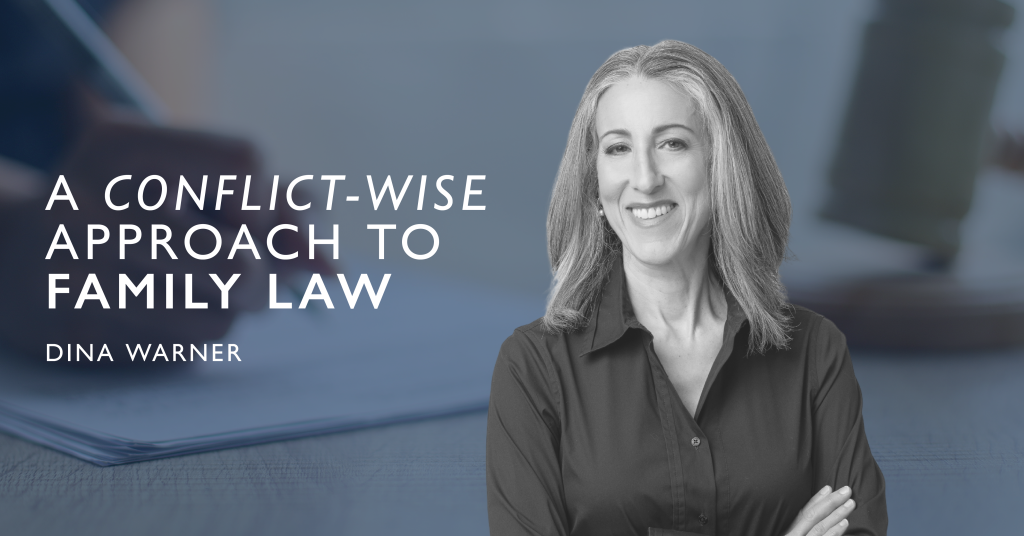
As family law professionals, we never forget that divorce is a family matter with legal consequences, not the other way around. Yet, all too often, divorce attorneys are perceived as aggressive “sharks” who want to fight it out in court and care more about their hourly fees than their clients. For decades, this stereotype has plagued our industry.
Litigating in court exacerbates contention, which is why for many clients it is a last resort, especially when children are involved. It is vital to work with an attorney who is conflict-wise—someone who can help you find the most practical, creative and private solutions to your divorce proceedings and minimize conflict in whatever forum is best for you.
What is a conflict-wise approach?
A conflict-wise philosophy acknowledges, first and foremost, that almost no one ever wants to go to court. Litigation can cost huge amounts of money and time and damage family relationships. In fact, most people would rather avoid the public spectacle altogether if they can. Plus, settling things outside of court gives both parties more control over the outcome. However, conflict-wise does not mean conflict-averse. If one party chooses to fight or if it’s otherwise in the best interest of the client, litigation may be necessary.
Whether you’re in court or not, it’s imperative to work with a strong advocate who will use every tool to guide and protect you through the complicated and emotional divorce process and tailor solutions to help you get the results you desire.
How does this approach work?
A conflict-wise approach focuses on solutions, not fighting, force of will or intimidation.
- Choose a forum.
It starts by choosing a forum that can give you the best outcome with the least amount of conflict. Over the years, I’ve developed a thriving alternative dispute resolution practice because there’s no limit to the sophisticated and creative solutions that can be designed when both parties agree to work together. There are several alternative dispute resolution methods available, including mediation for example, which provide you with more confidentiality and greater control over your decisions than litigation.
During this selection process, it’s crucial to work with an attorney who possesses psychological insight and technical expertise as well as the ability to strategize using both. A conflict-wise attorney with these skills can assess early on which forum is best for you. - Do a cost/benefit analysis.
Ask yourself, “What matters most to me in the long run?” A conflict-wise attorney will help you make an informed decision about the costs and benefits of pursuing your objectives. Do you want to keep your house? Continue to run your business? Maintain cordial relations after the divorce is over? Continue to have access to certain investment opportunities? Or move forward completely disentangled? A seasoned attorney will ask you guided questions to help you decide what’s most important to you and what’s potentially at risk. Your attorney should also be prepared to adapt the strategy to any change in your thoughts on these topics over the course of the process. - Be flexible in your strategy.
Your goals and priorities should drive your attorney’s strategy and representation. Family law — particularly divorce — is not one-size-fits-all. Every person, family and situation is unique and deserves its own approach. In fact, some cases may start in one forum and finish in another. For instance, you may begin in mediation but wind up in court or vice versa. Some cases can move in and out of court several times before they’re resolved.
Whether in or out of court, being conflict-wise in divorce yields more flexible and creative outcomes and minimizes fighting. Being conflict-wise allows you and your attorney to home in on the right solutions for you and empowers you to bring them about.